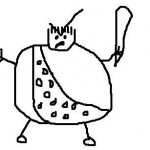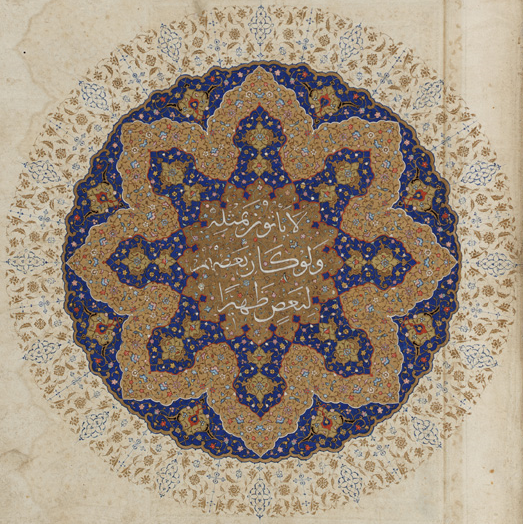
William Branham’s attitude toward women has already been the subject of much commentary. The Apologetics Index notes, “In spite of his apparent humility and consecration, Branham had great difficulty controlling a strident, hateful attitude toward women.” Indeed, in telling his life story, Branham admitted to loathing women as a young man:
But I can remember when my father’s still up there running, I had to be out there with water and stuff, see young ladies that wasn’t over seventeen, eighteen years old, up there with men my age now, drunk. And they’d have to sober them up and give them black coffee to get home to cook their husband’s supper. Oh, something like that, I said, “I…” This was my remark then, “They’re not worth a good clean bullet to kill them with it.” That’s right. And I hated women. That’s right. And I just have to watch every move now, to keep from still thinking the same thing.
It is rather telling that his objection was to the actions of the women involved in this debauchery, rather than his own father, who made and provided the moonshine! In another passage from his life story, Branham described crossing the street to avoid contact with women: “When I was even seventeen, eighteen years old, I’d pass down the street. I’d see a girl on one side, and I thought she was going say something, I’d cross over and go over on the other side, because I just didn’t want nothing to do.”
During his lifetime, Branham was sometimes accused of hating women. He responded to the charge in Souls That Are in Prison Now (November 10, 1963):
And I–I–I said, “Have I lost my mind just a little bit, you know, and–and kind of gone… Why am I condemning those women constantly, when I love them?” They call–say I was a “woman-hater: I just don’t hate–I just hate women.” See? That’s wrong. I love women, I mean as my sisters. I ain’t going to pat you on the back (See?) and you’re wrong. … I love you too much for that. … See? I love you because I love what you are. You’re a helpmate to a son of God, and you’re part of him. See? And I–I love you because that–that you were made in the image of man, and man was made in the image of God. So therefore together, you’re one in Christ. That’s why I love you.
In other words, Branham claimed that he was hard on women because he loved them (as his sisters in Christ) too much to let them get away with sins like cutting their hair and disobeying their husbands. In the eyes of Branham as well as his followers, he was “just the messenger,” delivering the Truth of God to women too rebellious to want to hear what he had to say. Let’s have a look at some of the things Branham had to say about “worldly” women in the same sermon:
She’s guilty. She’s the one that caused every baby to be born blind. She’s the one that caused every grave to be dug. She’s the one that caused sin, sickness, sorrow. A ambulance can’t ring unless a woman caused it. No crying can be done, no sin, no death, no sorrow, no suffering, but a woman done it. And God forbids her to go to the pulpit to preach, but yet they do it.
All the evil, death and sorrow of the world, according to Branham, was and is caused by women. But what about the women who follow his message? What does it mean to be the “sister” Branham loved? It means following his doctrines, of course!
In Marriage and Divorce (February 21, 1965), he said:
Now, the woman’s got her place, and she is a jewel. Solomon, this man that had ten thousand wives–or had a thousand wives, rather, he said that a man that’s found a wife has found a good thing. He said a good woman is a jewel in his crown; that’s an honor, but an unrighteous one is water in his blood. That’s his life. He said, “There might be one righteous man found in a thousand.” (Solomon said this.) But said, “You wouldn’t find one righteous woman in a thousand.” Solomon said that. See?
Now, notice that, that how it is. But you see, woman, you are–you are a jewel if you want to be a jewel, but the desire has to be by you. And you see why the marriage and divorce was, that Jesus pointed back yonder? It was because your kind was the cause of all sin. That’s the reason polygamy and divorce and things was introduced. At the beginning it never was so and it won’t be so in the world over yonder.
At her very best and most godly, the most a woman can hope for in the Message is to be counted an honorific possession of her husband. A “jewel,” a “good thing” – but still an object, never a person. Certainly not an equal. Indeed, in the passage above, he claimed to love women only because they were useful helpers to men.
In “A Jewel or a Trash Can,” I wrote about how damaging this teaching was to me as a little girl raised in the Message:
But I didn’t want to be a jewel or a trash can. I wanted to be a human being. I wanted to explore the world and work hard and write a book that would change people’s hearts and minds. I wanted to wrap my arms around the earth and make it a better place by the time I was old enough to be forgotten. But none of this seemed to impress God very much: what he wanted wasn’t great ambition or skill. I had the wrong genitals for that. What he wanted was another woman to stay in the home, to give birth, to obey the man who chose her as his wife. He wanted a jewel, and if I wouldn’t be a jewel, I’d just have to be a trash can.
Branham may have, after all, overcome his hatred of women. But it’s clear that he never saw us as more than useful objects. Women were useful and even beneficial to men, in other words, when we were functioning properly according to his doctrine of submission and obedience. When we “malfunctioned,” however, and asserted our autonomy, we quickly drew his ire. Was this hatred? Perhaps not. Do you hate your toaster when it’s broken? It’s undeniable, though, that what Branham preached and practiced was the objectification and dehumanization of women.











